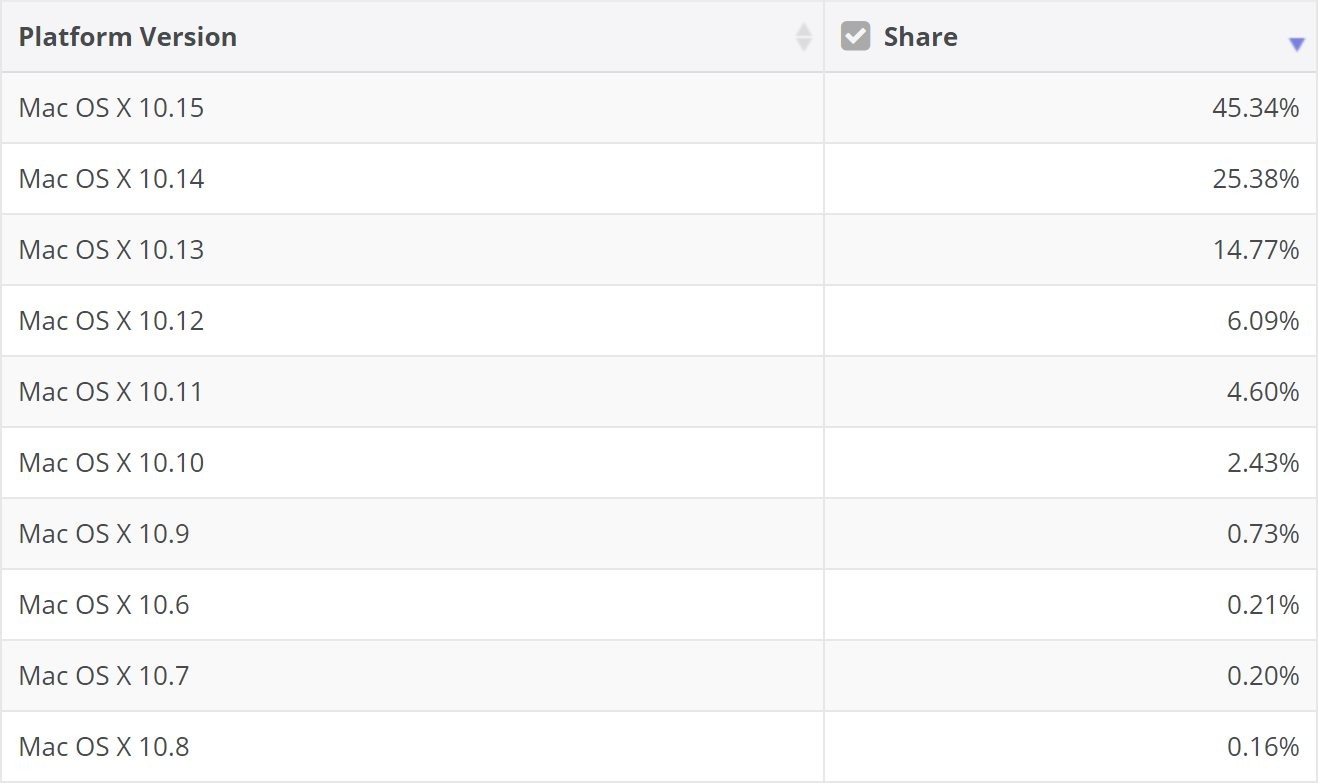Firefox 77 is now available for download on all supported platforms, but given the faster release cadence that Mozilla has already embraced for the browser, a new version should be here by the end of the month.
It’s Firefox 78, the update that’s already in the beta stage and which users on Windows, Linux, and macOS can already try out in advance.
While the beta builds are supposed to be used for testing purposes, they also provide us with an early look at what’s being changed for the supported platforms, and by the looks of things, Firefox 78 will come with some notable changes for Windows, Linux, and macOS.
While we have already discussed all Firefox 78 beta release notes in this article here, worth dissecting is a change concerning macOS devices.
Beginning with this new release, the regular Firefox channel would no longer receive updates on older versions of macOS. In other words, if you’re still running one of the macOS versions listed below, Firefox 78 will be the last major update that you’re going to get, so Firefox 79 would no longer support your operating system.
Mozilla says it’s pulling the plug on three old version of macOS, namely:
- macOS version 10.9 (Mavericks)
- macOS version 10.10 (Yosemite)
- macOS version 10.11 (El Capitan)
While for many this isn’t necessarily good news, Mozilla focusing on the latest versions of the operating system is something that makes total sense. macOS 10.9, for example, was released in October 2013, so it’s nearly seven years old.
Of course, given these are old OS versions, there’s a good chance only a bunch of users are still running them, so Mozilla’s decision is likely to impact only a limited number of devices.
So what are these users supposed to do after Firefox 78 launches? Needless to say, some are already thinking of switching to a different browser that still gets support for their old OS version, but giving up on Firefox isn’t necessarily the only way to go.
Mozilla will continue to support macOS 10.9, 10.10, and 10.11 as part of Firefox ESR, so simply switching to this version allows you to stick with the browser going forward. Of course, it’s not necessarily the most convenient switch given that Firefox ESR doesn’t get any new features but only security fixes and improvements, but since your device is running an outdated operating system, it’s a workaround that should help you get the job done until you upgrade the computer.
“Firefox Extended Support Release (ESR) is an official version of Firefox developed for large organizations like universities and businesses that need to set up and maintain Firefox on a large scale. Firefox ESR does not come with the latest features but it has the latest security and stability fixes,” Mozilla explains.
According to third-party data provided by NetMarketShare, out of all Apple computers out there, only 0.73% of them are still running macOS 10.9. As far as macOS 10.10 is concerned, a total of 2.43% of the Macs still in use are currently powered by this version, while macOS 10.11 is the OS that keeps alive 4.60% of the devices.
Of course, upgrading to the very latest OS version is pretty much the best way to go, obviously if the device that you’re using supports these most recent releases, as you receive not only full app updates, including for Firefox and others, but also security patches and new features from Apple. This is actually the case on any other platform, as keeping the device up-to-date is the best way to go moving forward.

 14 DAY TRIAL //
14 DAY TRIAL // 

